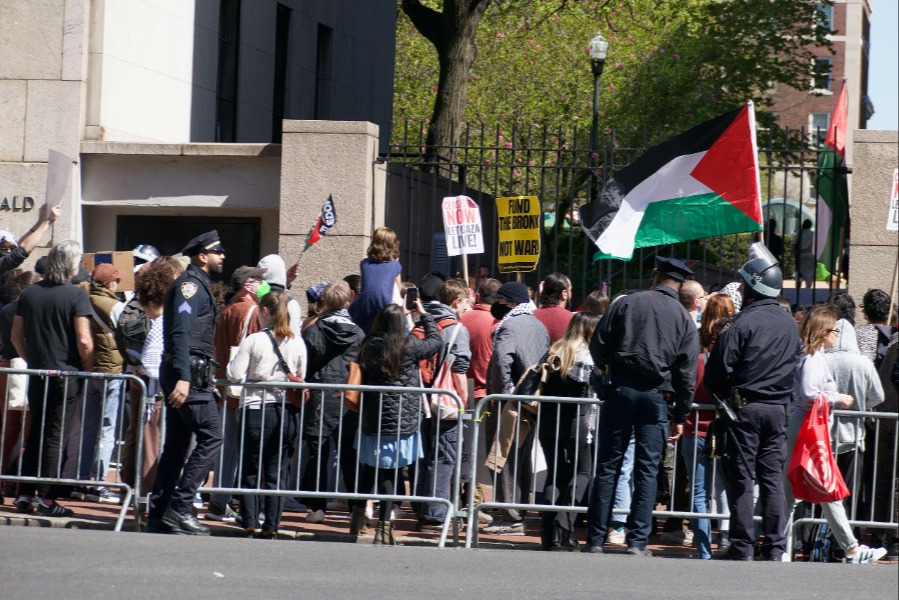International Terrorism Prosecutions: September Update
As September comes to a close, it has been a relatively quiet month for international terrorism arrests and prosecutions in the United States. All of the action—with the exception of one arrest—took place in New York City in the Southern and Eastern Districts. Next week, the attention will likely shift to Washington, D.C. when the trial of Abu Khatallah, the alleged perpetrator of the 2012 Benghazi attack, begins on October 2 in D.C. federal district court.
Published by The Lawfare Institute
in Cooperation With

As September comes to a close, it has been a relatively quiet month for international terrorism arrests and prosecutions in the United States. All of the action—with the exception of one arrest—took place in New York City in the Southern and Eastern Districts. Next week, the attention will likely shift to Washington, D.C. when the trial of Abu Khatallah, the alleged perpetrator of the 2012 Benghazi attack, begins on October 2 in D.C. federal district court.
The slower pace of arrests this month may suggest a larger nationwide trend. According to a report released last week by the Transactional Records Access Clearinghouse (TRAC), a data research group at Syracuse University, fiscal year 2017 (when ends on September 30) is on track for the fewest terrorism-related prosecutions since 2001. Of those 166 prosecutions, the Justice Department reported 38 international terrorism prosecutions during the first 11 months of the fiscal year. Domestic terrorism prosecutions continue to outnumber international terrorism prosecutions—so far, this year, the Justice Department counted 61 domestic prosecutions. (The Justice Department includes other offenses under the terrorism-related umbrella, such as terrorism-related export enforcement. Those cases account for the remaining 67 prosecutions.) That trend also holds across recent years: According to TRAC, over the last five years, the government has prosecuted 404 individuals for domestic terrorism-related offenses as compared with 223 for international terrorism.
In September, the Justice Department indicted two Islamic State (IS) supporters and accepted a guilty plea from an al-Shabab fighter. First, on August 31st, a federal district judge in the Eastern District of New York unsealed an indictment charging Dilshod Khusanov, 31, a citizen of Uzbekistan and U.S. legal permanent resident, with conspiring and attempting to provide material support to IS and the Nusra Front. According to the Justice Department’s press release, Khusanov raised and provided money to his friend, Akhror Saidakhmetov, to cover his Saidakhmetov’s travel expenses to Syria. Saidakhmetov planned to travel Turkey and then to Syria for the purpose of waging violent jihad on behalf of IS. Those plans changed when Saidakhmetov was arrested in February 2015 when he attempted to board his flight to Turkey. In addition, six of Saidakhmetov’s acquaintances were charged with either attempting to travel to join IS or funding their friend’s trip. I wrote about those cases and Saidakhmetov’s guilty plea here. Although Khusanov was charged in the Eastern District of New York, he was arrested in the Chicago area, according to the Chicago Tribune.
One week later, a grand jury in the Southern District of New York returned a superseding indictment charging Saddam Mohamed Raishani, 30, with three charges under the material support laws. He was charged with conspiring to provide, providing and attempting to provide, and aiding and abetting the provision and attempted provision of material support to IS by allegedly facilitating another IS supporter’s travel to join IS overseas. I wrote about Raishani this summer when the FBI arrested him at JFK airport on his way to Syria to join IS. At that point, Raishani was charged with attempting to provide material support—in the form of himself, as “personnel”—to IS. According to the Justice Department’s press release, the new charges involve Raishani’s alleged facilitation of another individual’s travel to join IS in 2015.
Also in the Southern District of New York, Maalik Alim Jones, 32, pleaded guilty to conspiring to provide material support to al-Shabab, conspiring to receive military training from al Shabaab, and carrying and using an AK-47 machine gun, rocket-propelled grenades and other weapons in furtherance of his support for al Shabaab. According to the Justice Department’s press release, Jones left New York in 2011 and travelled to Somalia, where he fought for al-Shabab for four years. He joined Jaysh Ayman, al-Shabab’s specialized fighting force, and was injured by a missile in a battle against Kenyan government soldiers. After being released from the hospital, Jones returned to his unit and participated in a raid on a Kenyan military camp. According to Reuters, Jones allegedly surrendered to Somali authorities in early December 2015 about 135 miles southwest of Mogadishu. Several weeks later, Jones was presented before a magistrate judge in the Southern District of New York, pursuant to a criminal complaint.
Looking to next month, the trial of Abu Khatallah—the alleged leader of the 2012 Benghazi attack—is scheduled to begin on October 2nd in federal district court in the District of Columbia. Last week, Judge Christopher Cooper granted the defense’s unopposed motion to postpone the trial for one week due to outstanding discovery requests, remaining issues regarding classified evidence, and pending motions. I previously wrote about Judge Cooper’s opinion denying Abu Khatallah’s Motion to Suppress statements he made to FBI agents while in custody and earlier this month Sarah Grant covered the court’s opinion granting in part and denying in part the Government’s pretrial motion to admit “other acts” evidence.





